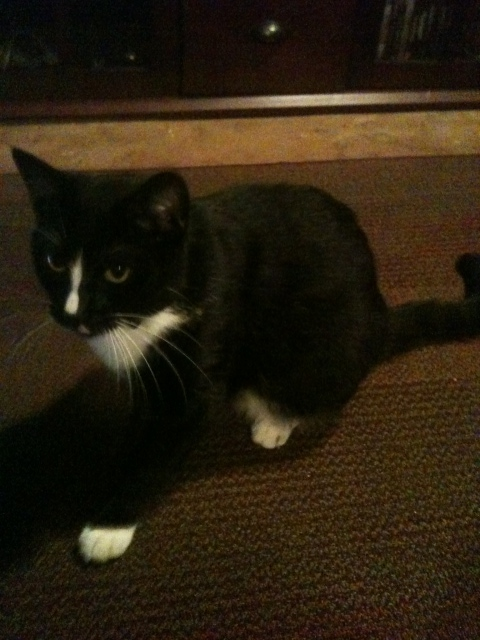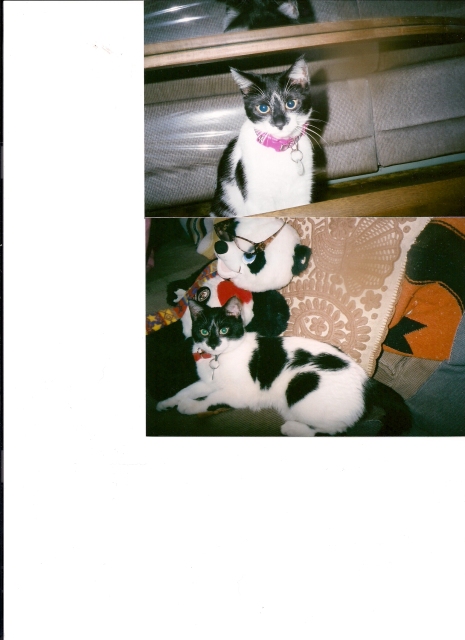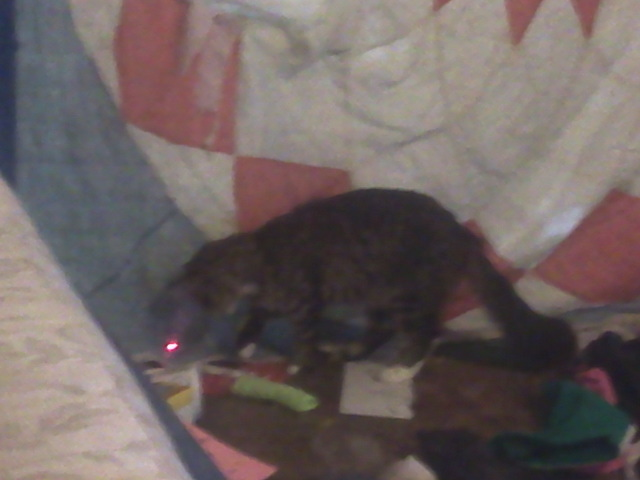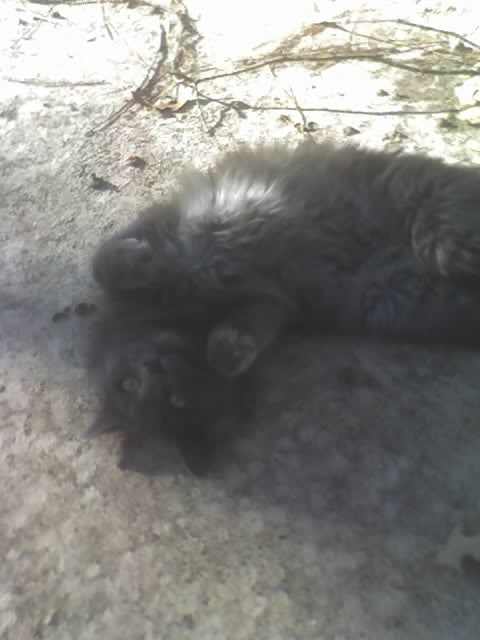QuestionDear Jessica, I have two littermates - sisters. They are a year old, and I'm finding out that it seems that their caloric requirements are different. I'm not sure how best to regulate their food intake. One of the cats has gotten quite chubby already, and the other seems to have a more slim, healthy weight. I feed them together twice a day (I feed a total of cup of food between the two of them in those two meals), and they appear to eat about the same amount of food - finishing the portion within a half an hour or so after I put it out. What can I do to try to help the chubby kitty lose some of the chub, but not underfeed the slimmer kitty? Should I put them in different rooms at mealtimes? I read somewhere that the right portion for a cat is what it will eat in 10 minutes twice a day. But then I read other things that say cats should be free fed. What do you think?
Thank you in advance for any information you can share, Jen
AnswerHi Jen. Most cats eat 15-20 small meals a day, and this is the reason many people suggest free feeding. However, not all cats can be trusted to not eat when they're not hungry, and in these cases, one or two meals daily are recommended.
In order to regulate their feeding, then yes, you'd have to separate them at meal time, allowing the chubby one to eat her portion and the one with a healthy weight to eat her portion. If there are any leftovers, take them away. Your healthy-sized cat will learn that she needs to eat her fill before the bowl is taken away. With all my multiple cats, trying to separate obese from healthy for feeding is nearly impossible. So they all get two meals a day, and all, except one who is still chubby, are of a perfectly healthy weight.
There is quite a bit of evidence that dry food is much more likely to cause obesity than canned food. This is because it contains a lot of carbs in the form of corn and grains, that the cat doesn't require. It's sort of the fast food of the cat world. While it's fine for some, it can be problematic for cats with slow metabolisms.
Canned foods usually contain fewer carbohydrates and more protein, which is just what an overweight cat needs. It might be wise to switch both cats, or just the overweight one, over to canned food (do this over the course of a week to prevent stomach upset). Feed as recommended on the label. Allowing a cat to eat all the canned food he wants is just as likely to cause obesity, since it's more palatable, and the cat will tend to overeat.
If you really want to feed a dry kibble, you can purchase light formula foods. These cat back fats and calories, but since cats readily metabolize and burn fat from food as a source of energy, reducing fat in the diet isn't always too productive. There's a prescription cat food available through vets, called Hill's m/d. It cuts carbs rather than fats and may be more successful than regular light diets.
As with people, exercise is also an important part of the battle. Try to spend at least 1/2 hour every day of intense play time, with ribbon wands, feathers, etc., to get her to work off some of that fat.
I do suggest to have the overweight kitty checked by a vet. There are endocrine disorders, including hypothyroidism, that can cause unusual weight gain.

 Identify Cat Breed?
Question
picture of my cat picture of my cat &nbs
Identify Cat Breed?
Question
picture of my cat picture of my cat &nbs
 Recently Adopted Cat
Question
CREAM PUFF
Hello !
Hoping all is well.
Recently Adopted Cat
Question
CREAM PUFF
Hello !
Hoping all is well.
 dones my cat sweet pea look pregnant?
Question
sweet pea sweet pea nipples
Hi w
dones my cat sweet pea look pregnant?
Question
sweet pea sweet pea nipples
Hi w
 my pregnant cat has given birth to one dead kitten
Question
l
my cat has been nesting for last 2 days, whe
my pregnant cat has given birth to one dead kitten
Question
l
my cat has been nesting for last 2 days, whe
 shots/food
QuestionQUESTION: Teresa,
Silver is a wild kitten we he
shots/food
QuestionQUESTION: Teresa,
Silver is a wild kitten we he